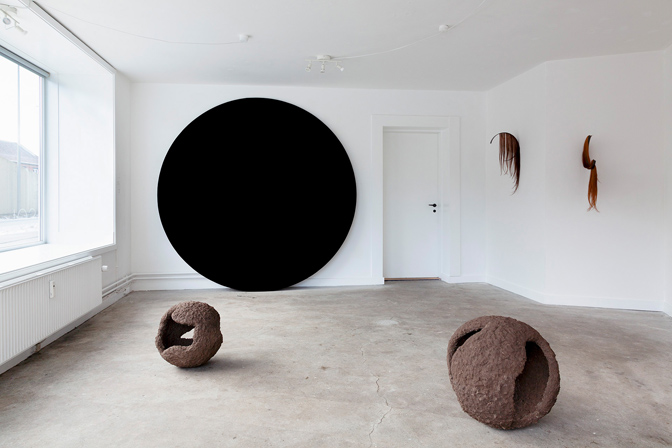
Collapse View
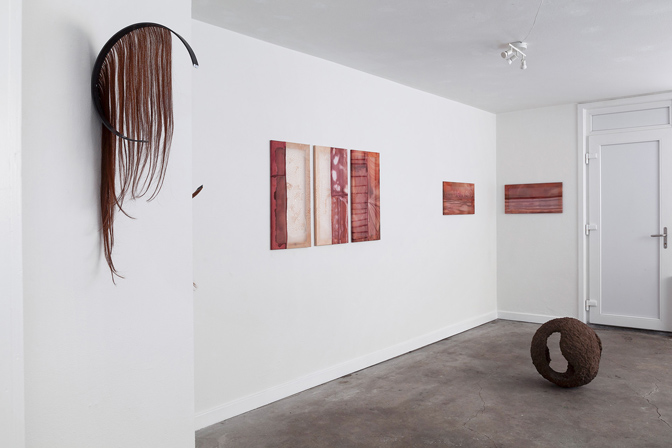
View

View
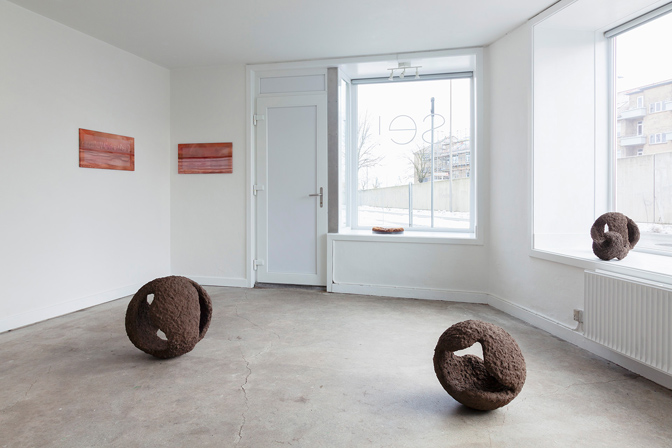
View

Collapse 2024 hairextension (real hair) and iron 34 cm Ø
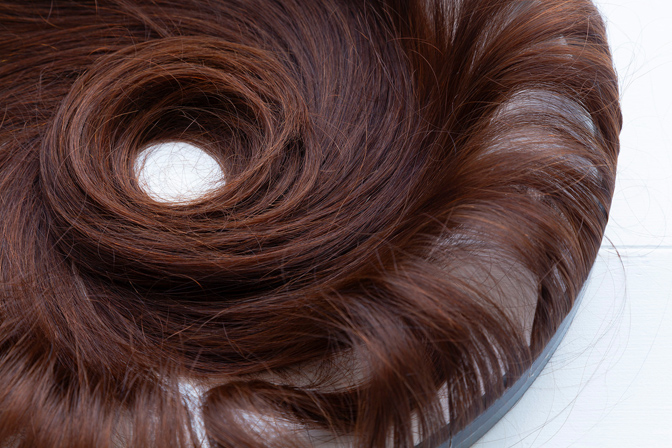
Collapse close up
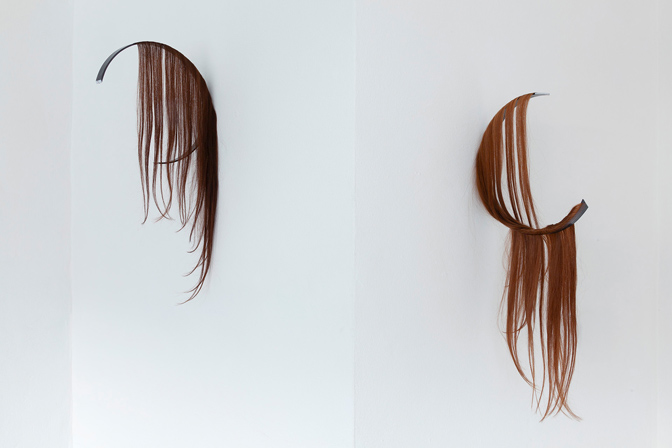
The Mess we're In I & II 2024

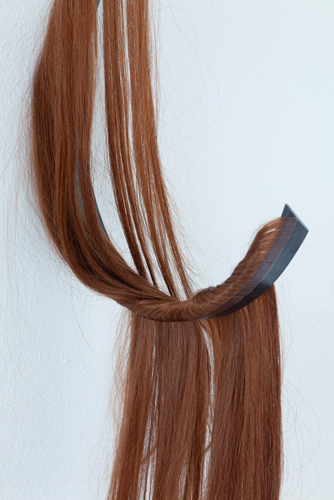
The Mess we're In I & II 2024 hairextension (real hair) and iron 74x33x6 cm 75x32x12 cm
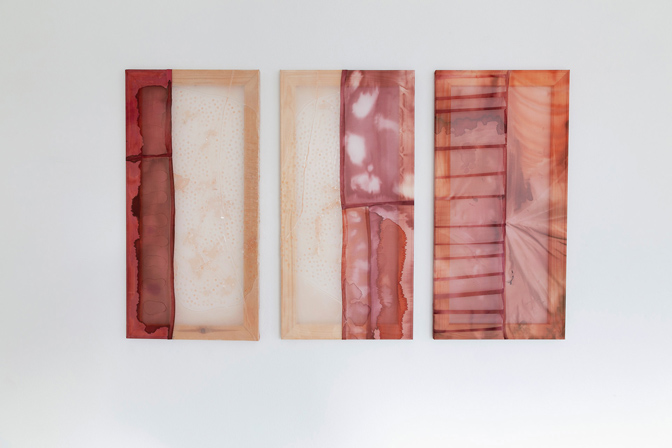
Interface 2024 silk, silkpainting, silicone and woodframe 78x38x2 cm each
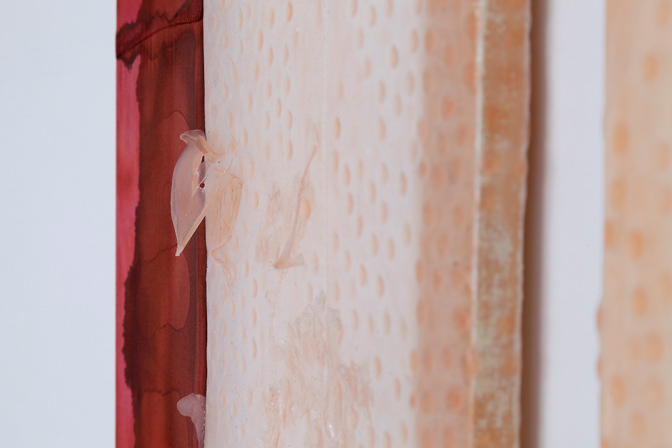
Interface close up
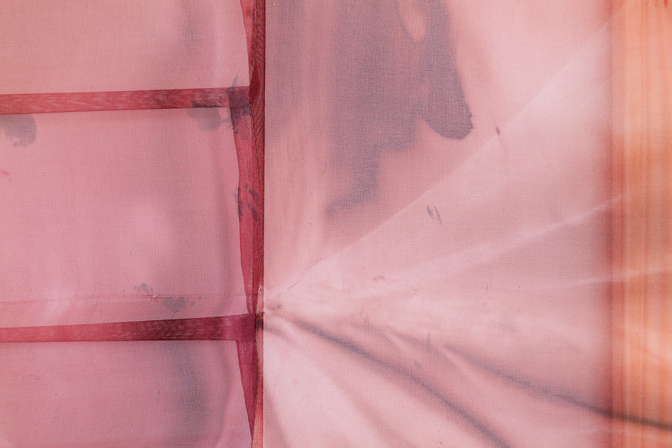
Interface close up
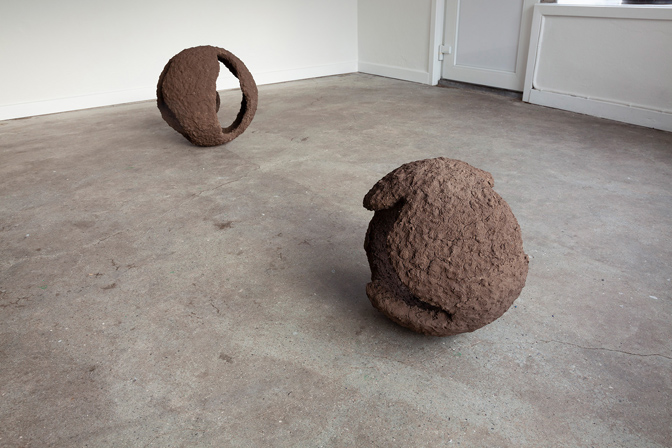
Tectonic Shifts 2024 soil, polystyrene and glue 44 & 55 cm Ø
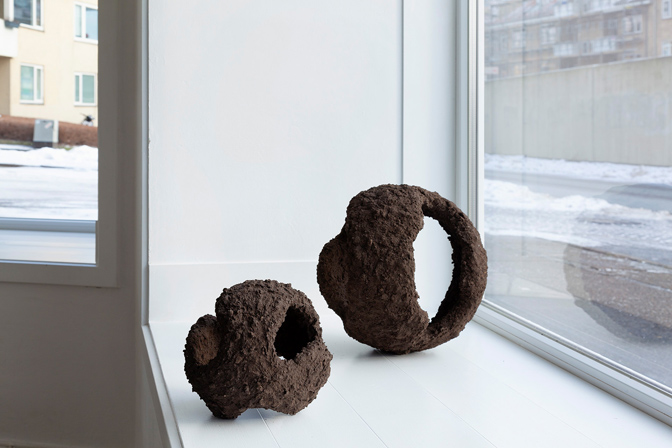
Tectonic Shifts 2024 soil, polystyrene and glue 22 & 33 cm Ø
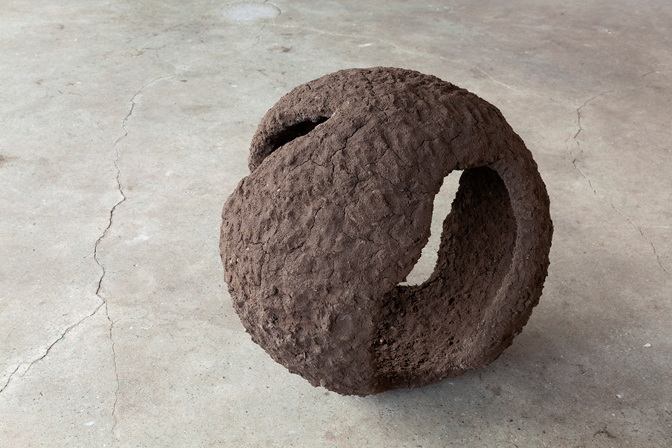
Tectonic Shift 2024 soil, polystyrene and glue 55 cm Ø
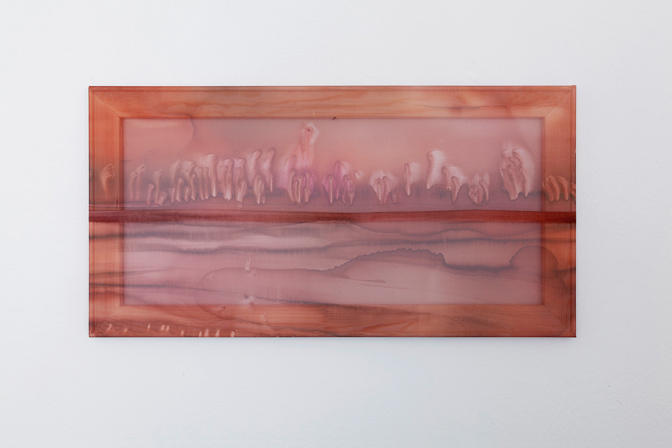
Condition I 2024 silk, silkpainting and woodframe 35x68x2 cm

Condition II 2024 silk, silkpainting and woodframe 35x68x2 cm

Limbo 2024 240 cm Ø black velvet and wood
Collapse
LOUISE SPARRE
Text by Sara Duborg Døssing
Light as a feather, Collapse lies anonymously draped on the windowsill, yet I still feel it insidiously pressing. Like a funnel, it forms a spiraling hole with its brown hair, seeking inward and down. It collapses.
If the rest of the world had the same consumption of natural resources as Denmark, it would require 4.2 Earths. In Information (danish newspaper), I read that Denmark ranks as the country with the 15th largest ecological footprint per person. Put simply: We use more than we have, and the extreme consequence would likely be a bio-collapse, where Earth's resources no longer continue to give but disappear, never to return again while we are here. So, perhaps the sculptures Tectonic Shifts are a warning or a metaphor for a planetary shift; a completely changed world? Maybe they are four hollow globes, where only a barren shell remains, a hard surface of brown and dead earth? The surfaces shift, and the sculptures become abstractions of nature's change processes as a terrifying forewarning. I think of planets, the Earth, meteors, or cell death—cells collapsing and structures breaking down. This brings me directly to my inner fear—a climate anxiety—for the sculptures stand for me as a kind of silent but firm reference to the 4.2 Earths mentioned in the newspaper's ominous article about our overconsumption.
With titles like Tectonic Shifts, The Mess we’re In, Limbo, and Condition, I feel subtly led towards thoughts about the world that surrounds me. And the state the world is in. Are we facing a climatic breakdown? What happens in the void called doubt? Fear? What happens if the oceans overflow and die out, if they are drained of life? Are we heading towards our own end? Are we heading towards the black hole, the void, Limbo, which here stands before me with overwhelming force? It absorbs the light and lets it disappear again into the black velvet, the sculpture's skin. It lets the darkness take over and forms an infinite space, perhaps a limbo phase? But what lies inside the black hole?
The Mess we’re In, two hair objects, form a direct line between humans and the resources we use so eagerly. Like tongs or tweezers, the metal points sharply at me while the hair falls softly, beguilingly, and twists around the hard material. We have created the metal from Earth's raw materials. But how long can we continue to take, pluck, and extract as we please?
Louise Sparre's work stems from a holistic mindset that everything is connected. Nothing happens in the world without it affecting something else. We are all dependent on nature, microbes, bacteria, the animal and plant kingdom, the moon, and the stars. We are part of an ecosystem that we must protect to participate in it. Sparre's artistic expression is tactile. She creates visual, physical, and poetic spaces for the contradictions found in reflections on the world's scientific phenomena. Contradictions that are emphasized by the combinations between the organic and the synthetic in her choice of materials; the natural and the man-made; the hair and the metal; the earth and the textile.
With the exhibition, which bears the same name as the work Collapse, Sparre underscores a necessity in society—a comprehension of nature's and our mutual dependence—as a cry of powerlessness we should all listen to before the world as we know it disappears.
supported by
